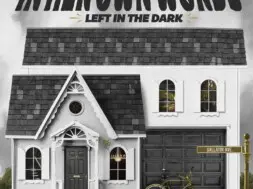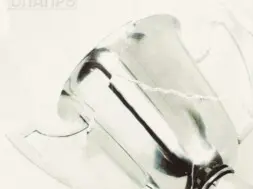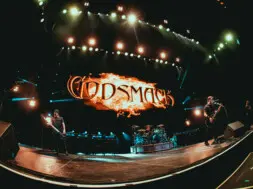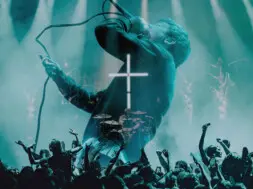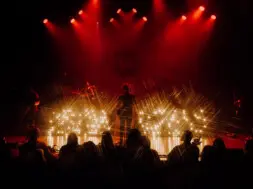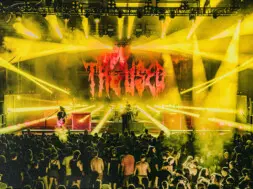
ALBUM: Coheed and Cambria – ‘The Color Before the Sun’
Some bands try and sound otherworldly; others construct entire fictional universes to place their songs in. Coheed & Cambria have proven over the course of seven LPs that they have more imagination and creativity than almost every other band under the sun, not only in the “Amory Wars” storyline that runs through their back catalogue but also their intoxicating cocktail of progressive rock, classical metal and emo pop. In the twin The Afterman albums they may have reached the pinnacle of their conceptual latitude, and with no new worlds to conquer they’ve made the (relative to them) quantum leap of abandoning the concept album together and producing what is by default their most personal and down-to-earth full-length to date.
Appropriately this lyrical downscaling goes hand-in-hand with a reining-in of the elaborate musicianship of old in favour of a newfound focus on the subtle art of hook building. The Color Before the Sun might consequently be the most accessible Coheed & Cambria album, and first and foremost the fact that it far from discards the band’s innermost soul is to be accredited. What makes the sassy, show-stealing verses of “Eraser” and the appropriately planet-sized chorus of “Here to Mars” work is that they emphasise the secret Coheed strength of putting an understatedly progressive spin on melodic post-hardcore anthems. Going further than this are “Colors” and “Ghost”, providing the dark counterpoint to the relatively optimistic tone through a black forest Brand New hush.
In the past the key strength of Claudio Sanchez as a lyricist has been how well he injects relatable personal themes into the grand Amory Wars narrative – what’s perhaps surprising is how well his words work outside of the concept. From the admittance on “Island” that “there’s no cure for this disease I’m making up” to questions of whether he’ll “get a chance to change” on “Peace to the Mountain” he’s relentlessly self-critical and unfailingly intriguing. The musical counterpoint is the ever-reliable rhythm section, messrs Eppard and Cooper belying the relative simplicity of this new material with a typically stunning pair of performances.
Where Coheed falter here is when they attempt to allow their pop flourishes to hold up the weight of songs for too long. “Atlas” is a six-minute beast of a track with a killer chorus that cuts to the heart with its paternal soul bearing, but runs too many times in succession before giving way to a similarly repetitive coda. The lead guitar line on “Young Love” puts a more colourful spin on the more melodic Gojira motifs (go listen to their “World to Come” if you disagree) but doesn’t have enough else to be particularly notable. A disappointing drop in quality in the album’s second half is overall what most lets it down, “You’ve Got Spirit Kid” lacking depth and “The Audience” half-heartedly trying to dreg up some metallic riffs that jar against what surround them. In its weakest moments The Color Before the Sun fails to ever really get off the ground.
That this is a departure for Coheed and Cambria as a band is obvious, and few could have predicted that their eighth offering would be closer to Pierce the Veil than Rush in tone and genre tropes. Growing pains and inconsistency aside there’s a lot to like here, and the relentless enthusiasm and vibrancy even in its grimiest moments is refreshing in a rock scene that too often wallows in self-pity. Feel-good progressive pop rock is in short supply. On the basis of the best of this album, that’s a damn shame.



